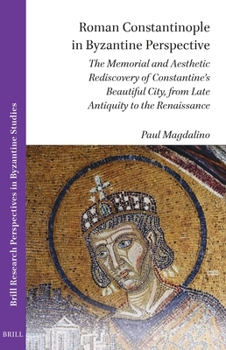Roman Constantinople in Byzantine Perspective: The Memorial and Aesthetic Rediscovery of Constantine's Beautiful City, from Late Antiquity to the Rena
This book studies the research perspective in which the literary inhabitants of Late Antique and medieval Constantinople remembered its past and conceptualised its existence as a Greek city that was the political capital of a Christian Roman state. Initial reactions to Constantine's foundation noted its novel Christian orientation, but the memorial mode of writing about the city that developed from the sixth century recollected the traditional civic cultural heritage that Constantinople claimed both as the New Rome, and as the continuation of ancient Byzantion. This research culture increasingly became the preserve of the imperial bureaucracy, and focused on the city's sculptured monuments as bearers of eschatological meaning. Yet from the tenth century, writers progressively preferred to define the wonder and spectacle of Constantinople in the aesthetic mode of urban praise inherited from late antiquity, developing the notion of the city as a cosmic theatre of excellence.
Format:Paperback
Language:English
ISBN:9004698892
ISBN13:9789004698895
Release Date:June 2024
Publisher:Brill
Length:184 Pages
Weight:0.62 lbs.
Dimensions:0.4" x 6.3" x 9.2"
Related Subjects
HistoryCustomer Reviews
0 rating





